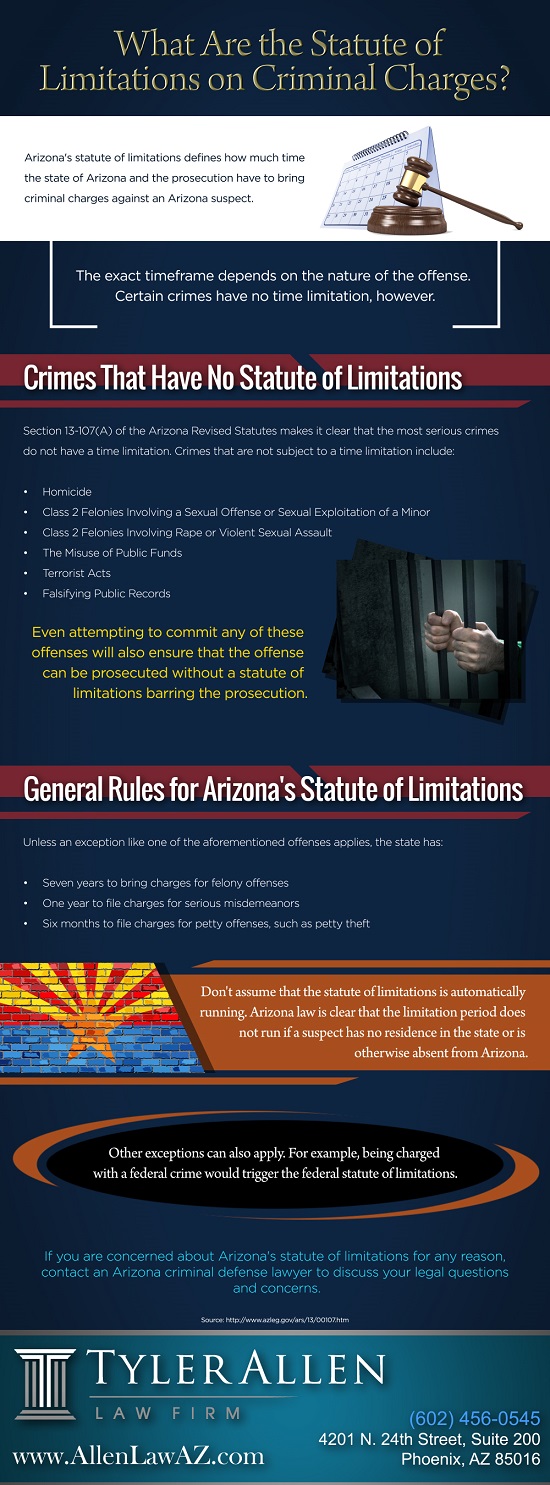What Are the Statute of Limitations on Criminal Charges? [Infographic]
What Are the Statute of Limitations on Criminal Charges
Arizona's statute of limitations defines how much time the state of Arizona and the prosecution have to bring criminal charges against an Arizona suspect.
The exact timeframe depends on the nature of the offense. Certain crimes have no time limitation, however.
Crimes That Have No Statute of Limitations
Section 13-107(A) of the Arizona Revised Statutes makes it clear that the most serious crimes do not have a time limitation. Crimes that are not subject to a time limitation include:
Homicide
Class 2 Felonies Involving a Sexual Offense or Sexual Exploitation of a Minor
Class 2 Felonies Involving Rape or Violent Sexual Assault
The Misuse of Public Funds
Terrorist Acts
Falsifying Public Records
Even attempting to commit any of these offenses will also ensure that the offense can be prosecuted without a statute of limitations barring the prosecution.
General Rules for Arizona's Statute of Limitations
Unless an exception like one of the aforementioned offenses applies, the state has:
Seven years to bring charges for felony offenses.
One year to file charges for serious misdemeanors
Six months to file charges for petty offenses, such as petty theft
Don't assume that the statute of limitations is automatically running. Arizona law is clear that the limitation period does not run if a suspect has no residence in the state or is otherwise absent from Arizona.
Other exceptions can also apply. For example, being charged with a federal crime would trigger the federal statute of limitations.
If you are concerned about Arizona's statute of limitations for any reason, contact an Arizona criminal defense lawyer to discuss your legal questions and concerns.
Source:
http://www.azleg.gov/ars/13/00107.htm

